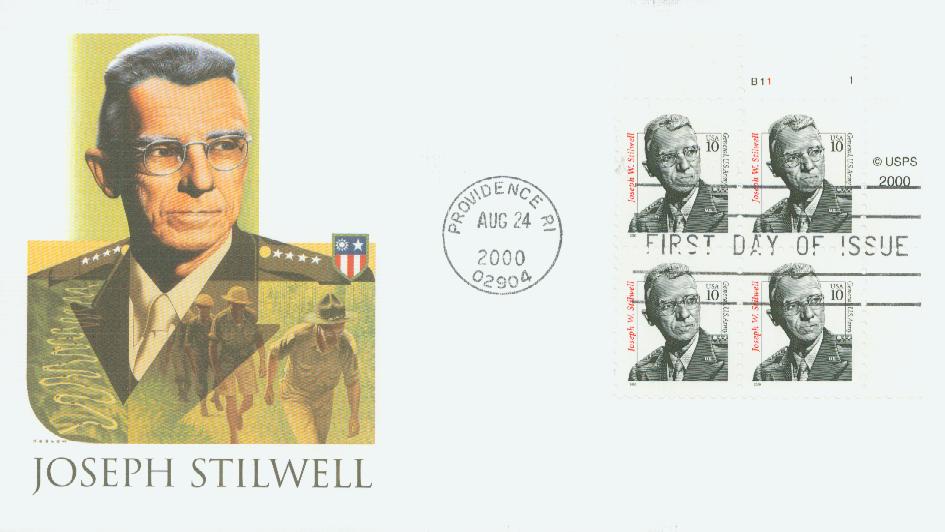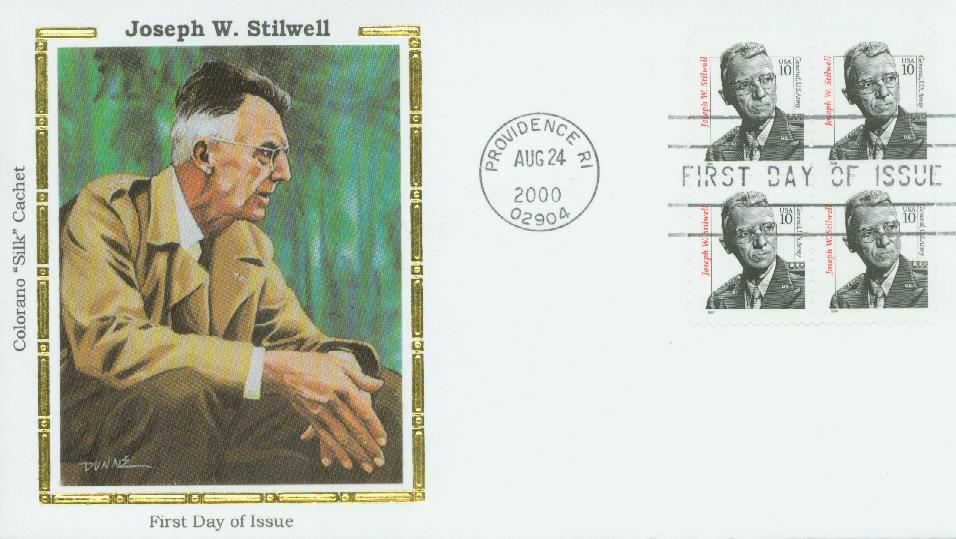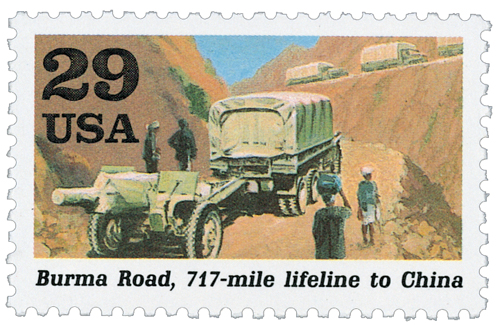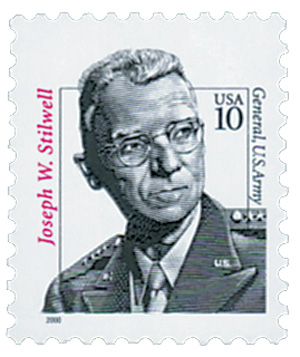
10¢ Joseph W. Stilwell
Distinguished Americans Series
City: Providence, RI
Printed by: Banknote Corporation of America
Printing Method: Lithographed and engraved
Pe... more
10¢ Joseph W. Stilwell
Distinguished Americans Series
City: Providence, RI
Printed by: Banknote Corporation of America
Printing Method: Lithographed and engraved
Perforations: 11
Color: Red and black
Birth Of General Joseph Stilwell
Raised in Yonkers, New York, Stilwell’s parents emphasized the importance of religion, which Stilwell rebelled against. Though he performed well in school and participated in football and track, his mischievous antics got him in trouble and eventually sent to the US Military Academy instead of Yale as he had originally planned.
At West Point, Stilwell showed a talent for languages, especially French. He also participated in cross-country running and football and is credited with introducing basketball to the academy. After graduating in 1904, he taught there for a time and attended the Infantry Advanced Course and the Command General Staff College.

During World War I, Stilwell helped plan the Saint-Mihiel offensive and received the Distinguished Service Medal. Between wars, he went to China three times and was the military attaché in Beijing. It was also between the wars that he earned two of his nicknames. He became known as Vinegar Joe after giving a harsh critique to a subordinate at Fort Benning, who in turn drew a caricature of him coming out of a vinegar bottle. Stilwell also became known as Uncle Joe for his deep concern for his soldiers.

During World War II, Stilwell was selected to lead the Allied invasion of Africa, but was needed in China to help keep them in the war. Stilwell was made commander of the China Burma India Theater and Generalissimo Chiang Kai-Shek’s chief of staff. The Burma assignment put him on the same level of command as Dwight D. Eisenhower and Douglas MacArthur, but Stilwell had the added burden of working with Allies who often had competing goals.

Stilwell arrived in Burma shortly before the defeat of the Allies. He then led his staff on a difficult 140-mile hike over the mountains to safety in India. Stilwell told the press, “…We got run out of Burma…I think we ought to find out what caused it, go back and retake it.” Stilwell oversaw the supplies China received from the US through the lend-lease program. He also reorganized the Chinese Army and trained two divisions, making him the first American general to command a Chinese army. Stilwell ultimately helped gain control of and rebuild the Ledo Road from India to Burma. This highway was later renamed in his honor.

The four-star general was criticized for sending sick and physically exhausted troops back into battle (any fever less than 104 degrees ended a soldier’s time in sick bay). Yet Stilwell kept supply lines open and even improved delivery amounts and time. By 1945, a plane took off for China with vital supplies every 72 seconds. He never complained publicly about his Burma assignment or his treatment by the president and Chiang Kai-shek.

Stilwell was recalled from command on October 19, 1944, but later served briefly at Okinawa. Returning to the US, he led a War Department Equipment Board, which looked into how to best modernize the army. Among his recommendations were improving the army’s defenses against airborne threats and adopting guided interceptor missiles.
San Francisco. There he led two platoons that suppressed a prison riot at Alcatraz. In October of that year Stilwell died after a surgery for stomach cancer, just five months short of the Army’s mandatory retirement age.
During his life, Stilwell earned a number of military decorations including the Distinguished Service Cross, Distinguished Service Medal, the Legion of Merit degree of Commander, the Bronze Star, and the Combat Infantryman Badge.
Less
Most Orders Ship
within 1 Business Day
90 Day Return Policy
Satisfaction Guaranteed
Earn Reward Points
for FREE Stamps & More













